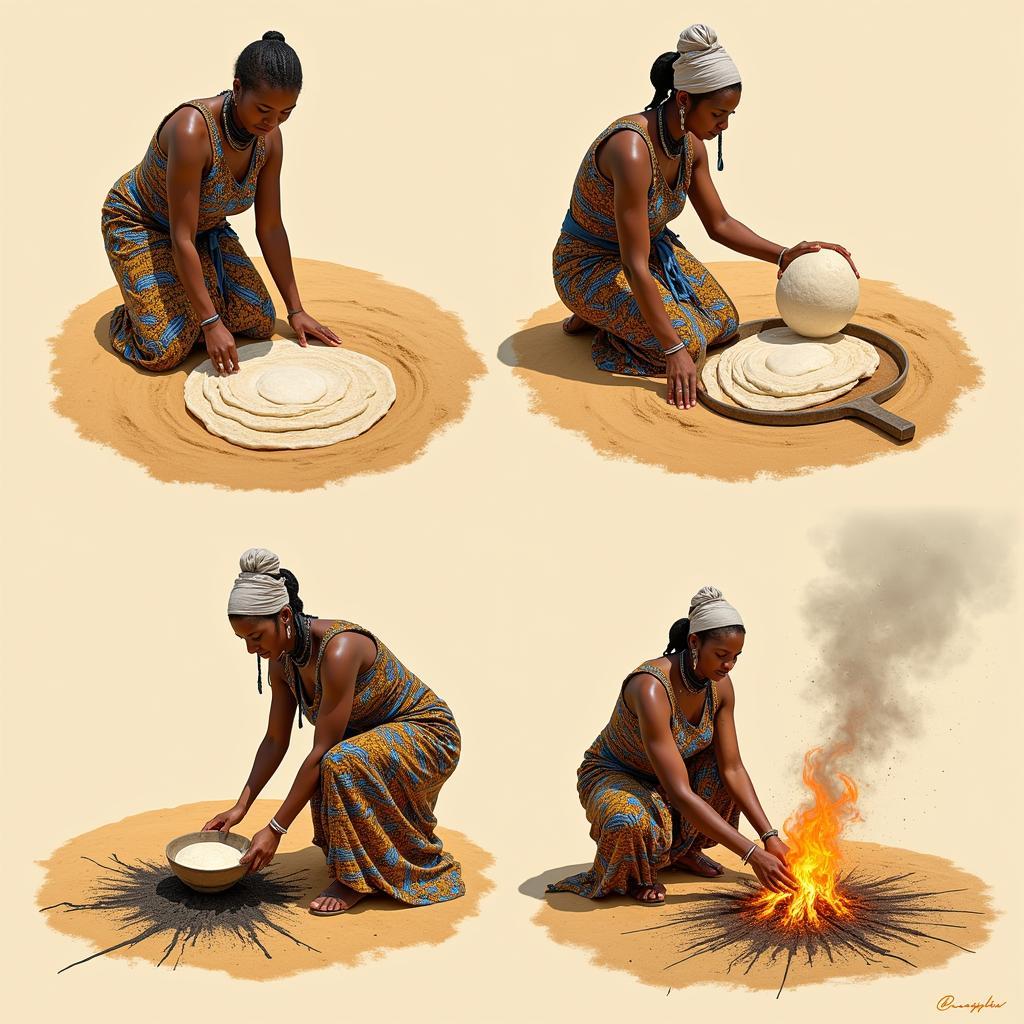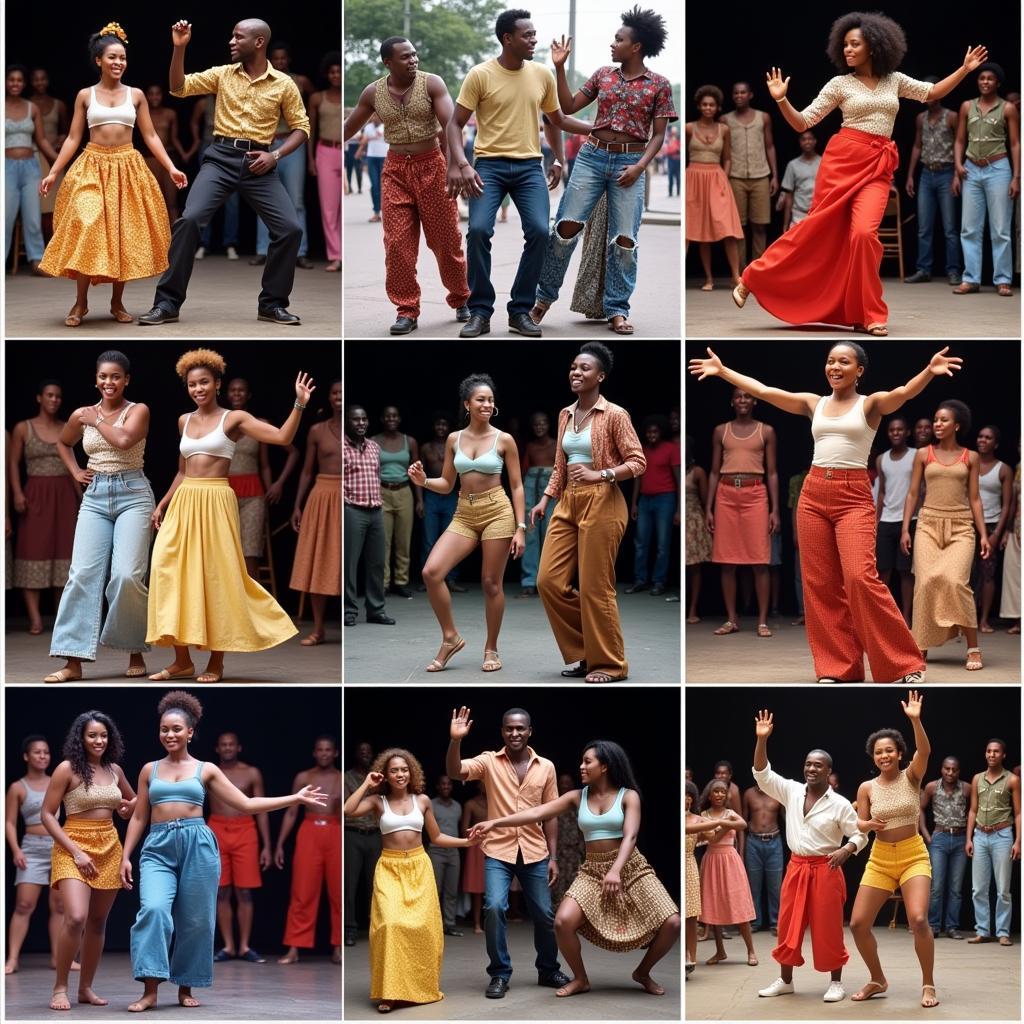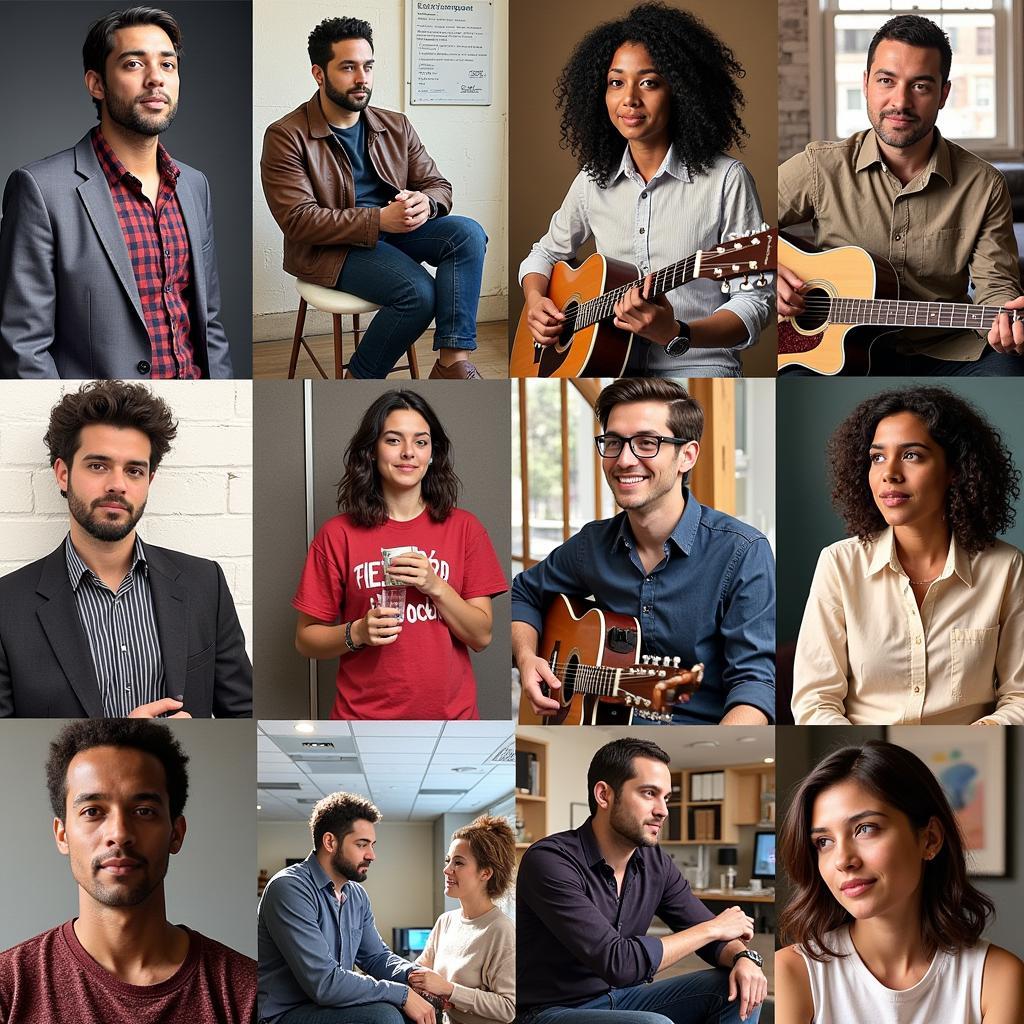Exploring the Magic of African Folktales
African Folktales are more than just stories; they are a vibrant tapestry woven with the threads of history, culture, and tradition. Passed down through generations, these narratives offer a glimpse into the heart and soul of diverse communities across the African continent. They entertain, educate, and instill moral values, reflecting the rich heritage and wisdom of their origins. From tales of cunning animals to epic battles between good and evil, African folktales offer a captivating journey into a world of imagination and wonder.
The Significance of African Folktales in Cultural Preservation
African folktales play a crucial role in preserving cultural heritage. They act as a repository of traditional beliefs, customs, and values, transmitting them from one generation to the next. These stories often embody the history, social structures, and spiritual beliefs of a particular community, providing valuable insights into their way of life. They are also instrumental in shaping cultural identity and fostering a sense of belonging. For example, stories about family highlight the importance of kinship and community in many African cultures. If you’re interested in reading more about this, check out these african folktales about family.
Many folktales also contain hidden lessons, teaching children about right and wrong, respect for elders, and the consequences of their actions. These moral teachings are often woven seamlessly into the narrative, making them both entertaining and educational.
Different Types of African Folktales: A Diverse Narrative Landscape
African folktales encompass a vast array of themes and characters. They can be broadly categorized into several types, including animal fables, trickster tales, origin myths, and heroic epics. Animal fables often feature anthropomorphic animals who embody human characteristics and teach moral lessons. Trickster tales revolve around cunning characters who use their wit and deception to outsmart others. Origin myths explain the creation of the world, the origins of different tribes, or the existence of natural phenomena. Heroic epics narrate the adventures of courageous individuals who overcome obstacles and achieve greatness.
There’s a wonderful collection of these diverse tales available in an african folktales book. You can discover captivating stories from various regions and traditions within the African continent.
What are the key characteristics of African Folktales?
African folktales often feature repetitive phrases, songs, and call-and-response patterns, which enhance the storytelling experience and create a sense of community participation. These elements also make the stories easier to remember and retell. The narratives are often characterized by their use of vivid imagery, symbolism, and metaphors, which add depth and meaning to the stories.
Many African folktales, especially those aimed at children, can be found in PDF format. If you’re looking for readily accessible versions of these stories, you might want to check out resources offering african folktales pdf.
The Power of Oral Tradition: Keeping the Stories Alive
Traditionally, African folktales have been passed down orally, from generation to generation. Storytelling is considered an art form, and skilled storytellers are highly respected within their communities. The oral tradition allows for flexibility and adaptation, as stories can be modified and embellished with each retelling, reflecting the changing times and circumstances.
Dr. Anika Nkosi, a renowned anthropologist specializing in African oral traditions, notes, “African folktales are not static relics of the past, but living, breathing narratives that continue to evolve and resonate with contemporary audiences.” This dynamic nature ensures that the stories remain relevant and meaningful across generations.
Why are African Folktales important for children?
African folktales offer valuable educational benefits for children. They stimulate imagination, creativity, and critical thinking skills. They also help children develop language skills, expand their vocabulary, and understand different cultural perspectives. Moreover, they promote empathy and understanding of human emotions, fostering emotional intelligence. Many folktales are specifically designed for younger audiences. You can find a curated selection of these enchanting stories in a resource dedicated to african folktales for children.
Professor Kwame Asante, a leading expert in African literature and education, states, “African folktales are a powerful tool for nurturing young minds and instilling values of respect, responsibility, and community.” This highlights the educational significance of these narratives in shaping the future generations.
Conclusion: The Enduring Legacy of African Folktales
African folktales remain a vital part of the cultural landscape of Africa. They offer a window into the rich history, traditions, and beliefs of diverse communities across the continent. These captivating narratives not only entertain but also educate and inspire, preserving cultural heritage and transmitting valuable lessons for generations to come. As we continue to explore the magic of African folktales, we discover a timeless treasure trove of wisdom, imagination, and cultural understanding.
FAQ
-
What is the purpose of African folktales?
- To entertain, educate, and transmit cultural values.
-
How are African folktales passed down?
- Primarily through oral tradition, from generation to generation.
-
What are some common themes in African folktales?
- Animal fables, trickster tales, origin myths, and heroic epics.
-
Why are African folktales important?
- They preserve cultural heritage, teach moral lessons, and promote social cohesion.
-
Where can I find African folktales?
- In books, online resources, and through community storytelling events.
-
Are there African folktales about specific animals?
- Yes, there are many african folktales about lions, for instance.
-
What are some examples of African folktale characters?
- Anansi the spider, the hare, the lion, and the tortoise.
For any further support, please contact us at: Phone: +255768904061, Email: kaka.mag@gmail.com Or visit us at: Mbarali DC Mawindi, Kangaga, Tanzania. We have a 24/7 customer support team.



